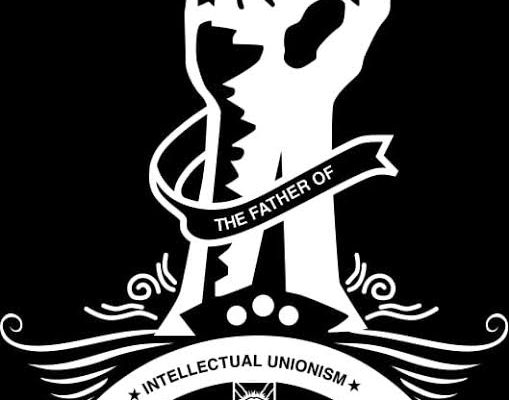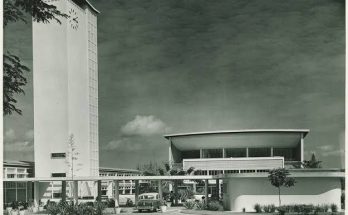16th-17th July, 2024 saw the first protests, in seven years, among students of the University of Ibadan. The school fees of almost every student were doubled. Some even tripled, making scores wonder, “Was this fair?”. UI students came out in their thousands, demanding justice and fairness, demanding to be heard by the University itself. On each day of the protests, the Students’ Union, though appearing weak, made sure its appearance counted for something. From the use of the Aluta bus, acquiring microphones, organising congresses and even dialogues with the University authorities, they showed their slight but intentional back up with the students.
Unfortunately, this cannot be said for the leaders in various faculties, departments, and the halls. Apart from the represenatives of Nnamdi Azikiwe Hall and the Great Independence Hall, and leaders of departments like English Language (NASELS), almost all others were reluctant to join in the fight for justice and the reduction of the fees of the very people that they are meant to lead.
This brings us to the introduction of today’s editorial. Why this measure of sheer detachment from what they are primarily meant to do, and what can be the cause of this issue?
Perhaps, this is because many forget why they run for such positions and they act cowardly in the face of opposition, and just want to save their academic faces instead of standing for what they know to be right. Holding a leadership position at the University of Ibadan should not merely be about holding titles or a label on a bottle, to be shown around on CVs. It is about embodying responsibility, trust, and proactive engagements. Here, if the scenario of July 17 is to be painted with the right colours, strokes and techniques, leaders, in the University of Ibadan, whether in departments, faculties or even halls, are expected to first, lead. They are expected to stay at the forefront of any issue bothering the student populace, whether in their jurisdictions or even outside their jurisdiction. One, which is very evident, is the hike in school fees.
Unfortunately, the canvas cannot be said to be painted right, as in recent times, the student body has witnessed a troubling pattern where faculty presidents, departmental heads and hall executives – key figures in student representation – have not just failed to rise to the occasion during these critical moments, but have run away and hidden in the face of opposition with different reasons that hold no salt.
For instance, a student leader, during the second protest on August 29–30, 2024, blocked members of their hall from leaving the hostel to join the protest, the same protest that would help the school to understand students’ plight as touching the issue of school fees, stating that the people who joined the protest “Don’t have any future.” In cowardly fear of joining their voice with other students, they stopped people in their jurisdiction from joining the protest, even after signing a release that “they stand with students during the trying times”. What a steaming confusion!
This lapse has become particularly evident in the wake of the significant fee hike announced for the 2024/2025 academic session, where fresh students faced school fees ranging from ₦133,000 to ₦256,000 per session. The Students’ Union, recognizing the gravity of the situation, convened a crucial meeting on the 1st of May, 2025, where student leaders from various halls, faculties and departments were brought together to develop a unified strategy to address the financial burden placed on students by the fee hike. Despite this initiative, the burden of advocacy for the students and negotiation largely fell on the shoulders of the Students’ Union President, highlighting a disconcerting passive attitude among other student leaders.
This scenario shows a deeper issue within the University’s student leadership structure, as faculty and departmental heads now see themselves as ceremonial leaders who are just meant to draw up budgets, organize Freshers’ Welcome, fulfil their manifesto, take pictures with dignitaries, organize dinners and drop the cap for who comes next after drawing a map of “How Well I Did As a Faculty President.”
All these show that they know not their purpose in the University of Ibadan. Faculty presidents, departmental presidents, hall chairmen and their executives are not merely ceremonial heads. They are supposed to act as the grassroots leaders of students, shaping the academic and administrative experiences of students. Their leadership is essential in aligning their goals with the broader goals of the Students’ Union and the entire student populace, one of which is to ensure that students receive quality education and support.
The absence of coordinated efforts and active engagements from faculty, departmental and hall student representatives during these trying times, especially the hike in fees crisis, points to a failure in fulfilling their representative roles. This lack of collaboration not only undermines the efficacy of student advocacy but also erodes the trust students place in their leaders. The Students’ Union itself is not without its own flaws, but it cannot and should not be the sole entity bearing the weight of student representation, as other representatives in different jurisdictions are expected to work hand in hand.
That, for one, is a reason why the Councils of Faculty Presidents, Departmental Presidents and Hall Chairpersons exist. They are meant to work hand-in-hand to ensure the cares and fears of their constituents are represented adequately, but they also hold the leadership of the Students’ Union accountable.
Yet, we are seeing an opposite trend. These representatives now seem more interested in defending the privileges of the Council than defending the rights of the students. A clear example is the case of basic dues. Instead of fighting for reforms that could ease the financial pressure students are facing, many of these leaders chose to channel their energy into ensuring automatic deductions of their dues, even when it was clear that students could not afford them. This selfish priority is not just disappointing, it is alarming.
They must also note that they are not there to fight for the rights of the Council of Presidents or Hall Chairpersons, just like in the case of the basic dues, but they are there to fight for the cause of students in the University of Ibadan without fear or faltering. So, the current state of the student leadership at the University of Ibadan calls for introspection and reform. These representatives must move beyond the allure and beauties of the titles and emblems they bear and embrace the responsibilities that come with their positions. They must engage with their constituencies, collaborate with their peers and take decisive actions that reflect the interests and aspirations of the students they represent.
Only through such committed and collective leadership can the student populace of the University of Ibadan hope to navigate the challenges it faces and uphold the values of representation and accountability.



